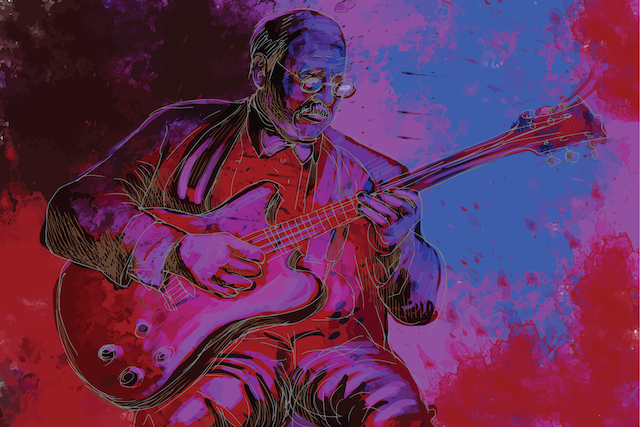Finding Happiness When Your Big Dreams Didn’t Come True
“Everyone who gives up a serious childhood dream—of becoming an artist, a doctor, an engineer, an athlete—lives the rest of their life with a sense of loss, with nagging what-ifs.” ~Glenn Kurtz Childhood dreams are a funny thing, aren’t...


“Everyone who gives up a serious childhood dream—of becoming an artist, a doctor, an engineer, an athlete—lives the rest of their life with a sense of loss, with nagging what-ifs.” ~Glenn Kurtz
Childhood dreams are a funny thing, aren’t they?
Our adolescent years are filled with nearly unlimited imagination of what we can achieve growing up. Some people become doctors, presidents, and professional athletes, so why can’t we? It just depends on hard work and occasional lucky breaks to get where you want.
Reality slowly starts to set in as you grow into your teenage and adult years. Maybe those ambitions are a lot tougher than I thought they’d be. Perhaps I was delusional more than anything.
Is it all bad, though? Even if we were unrealistic, our dreams and even delusions fed our motivations and made life more fun. Dreaming of going to space or playing at Yankee Stadium is integral to our creativity, so it’s essential not to regret everything.
What I do regret are the things that were more in my control.
When you’re a kid, seeing married couples in real life and on the silver screen is natural. As we enter our teenage years, we think dating and marriage will be easy as a natural part of life. It may come easily to some, but it’s become as complicated as quantum physics to me.
Getting two people on the same page about love and relationships is an uphill battle, to say the least. Even if you get married, the odds of divorce are relatively high. About 44% of American marriages end in divorce, and past relationships have opened my eyes as to why this happens.
Not every couple can be like Pam and Jim from The Office or Monica and Chandler from Friends. As I’ve learned, putting your love in somebody else’s hands is a tall task. More often than not, you’ll find yourself heartbroken.
My first real relationship was smooth for a few months until the mask started to slip. Bottling up feelings and avoiding communication create a recipe for disaster. The next go-round would be better after I learned my lesson, right?
If only I weren’t so naive.
The next serious relationship wouldn’t come until a couple of years later. While it went better than the first time, the person I tried to love was far too hot and cold. I didn’t have time for someone personifying a Katy Perry song.
The third time could have been the charm, but I ran into yet another situation of poor communication. After a while, I started to wonder if I was the problem. What responsibility did I bear in my failed relationships?
The childhood version of me thought love was supposed to be easy, but it’s far from a linear process. You must be ready to deal with the ups and downs to sustain a long-term relationship with someone.
I’ve learned a little more about life and myself with each failed relationship. Additionally, I compare how I view relationships now and how I saw them as a teenager.
In high school, I was desperate for love and attention. I had never had a long-lasting relationship until college, so I longed for that feeling.
So, what’s changed? The difference between now and high school is I have learned to love myself.
You can’t love another person until you love yourself, which has been a hard pill to swallow. However, I am better off with this mantra because now I’m more confident and perfectly fine being alone.
Now, over a decade has passed since that first relationship, and I’ve had plenty more experience. Some good, some bad, and some painful to even revisit. Still, I’ve yet to find “the one” that the younger me dreamed was out there.
Will that relationship ever come? I’ll survive either way because I’ve prepared myself with love and care. While it may sound selfish, I’ve realized I am the most important person in my life—nobody can take that away from me.
I love myself by eating a mostly healthy diet, focusing on my fitness, and surrounding myself with supportive family and friends. What more could I reasonably ask for?
Another childhood delusion I’ve dealt with in adulthood is my dream of wealth. Just like our experience with relationships, we see people with extravagant lifestyles in real life and in media. Even if we didn’t get that in childhood, we aspire to work hard and live like rich people someday.
Why can’t I be the one on House Hunters looking at million-dollar homes? In my younger years, I envisioned yearly trips to France, Japan, Disney World, and everywhere in between.
It’s another case where reality hits you in the face as you age. You can dream of wealth, but it’ll stay in your subconscious. You’ll need to win Powerball a few times to be Bill Gates-rich.
Money is nice because it gives you more freedom to do things and accomplish your goals. However, I’ve realized it’s not everything. Money doesn’t make me happy—I can take responsibility for that.
To be clear, I wouldn’t mind winning the lottery or hitting the jackpot at the casino occasionally. However, there’s so much more to my life than an impressive bank statement.
I have a career with short and long-term goals I want to accomplish. My professional growth could and hopefully will lead to more money, but dollar signs aren’t my primary concern.
I’ve learned that money comes and goes in life, but your happiness shouln’t depend on it. I make a living doing something I genuinely enjoy, and as long as I can pay the bills doing so, that’s enough for me. I embrace my working life and relish sharing my thoughts with others.
You know what makes me happy? Instead of aspiring for more money, I take pride in being smart with the money I have while enjoying life and enjoying experiences with my friends.
Who needs a multimillion-dollar mansion with spiral staircases and gold spoons? Having a smaller home with people who care about you is invaluable.
Another fixation I had in childhood was my aspiration to be a professional athlete.
I knew football and baseball weren’t for me at an early age. I didn’t need a scout to tell me that after watching my games, but basketball was different for me.
I got my first hoop in fourth grade, which helped me fall in love with the game. Basketball was a sport I could play by myself and train to be just like the pros.
Growing up, I thought I could be the next Dirk Nowitzki or Kevin Garnett. Their ability to score from inside and outside the paint inspired me to work on my game in the driveway.
However, reality quickly set in when I got to middle school. A lot of kids were much taller, faster, and stronger than I was then. The intimidation overwhelmed me and prevented me from trying to make the team.
I don’t regret not trying because life took me in different directions once I got to high school. Juggling basketball would not have been wise for my academic priorities back then. Plus, my fitness made me nowhere near ready to run up and down the court for two hours.
Regardless, I quickly threw cold water on any hopes of playing professional basketball because the odds of making it are so low. Even if I’d somehow been the star of my high school team, I would’ve had to get a spot on a college team or international league, too. That’s not an easy task.
Then, if you’re lucky enough to play college basketball, you can forget about going pro unless you have other-worldly talent. Research shows only 2% of college athletes make the pros, and I didn’t want to try out for my middle school team.
Nowadays, I get my basketball fill by playing in a local YMCA league with some friends. We take the game seriously, but we play for the love of the sport—not because we think we deserve spots on NBA rosters.
Basketball is one of the hobbies I use to keep myself going, and I’ll admit, I’ve legitimately gotten good. Do I still pretend I’m going one-on-one with professional players? Yes, but I’m now well aware of reality.
Speaking of hobbies, let’s talk about music. Many of us dreamed of winning American Idol when we were young and thought we had a chance.
Your voice may sound incredible when singing in the shower, but how do you sound on a microphone in front of thousands watching?
As a kid, I thought I could be a legitimate music artist. Learning to play instruments in high school certainly fueled the dream, though at times I let my imagination run ahead of me.
I used recording software in high school to produce a song I had written. It was far from something you’d see at a professional label, but I tried to make it work. When I played it back, I was proud of what I’d created.
Ultimately, what started as a hobby never became a career, but I’m okay with that. I enjoy what I do and am satisfied by creating for the fun of it.
I daydreamed of Radio City Music Hall, Madison Square Garden and Shea Stadium concerts. For now, I’ll entertain the imaginary audience in my shower and the small crowds on karaoke night.
As a child, you think the world is your oyster. Your imagination runs wild with how far you believe life will take you.
I dreamed of hitting buzzer-beating shots and falling in love with the first person I found. However, it’s not that easy.
The good thing is we can still get a lot out of life if we find things we truly enjoy. I love my job, hobbies, family, and friends, and that’s good enough for me.
The adult version of me has realistic goals, both short and long-term. I get my happiness by caring for myself and doing what I need to find satisfaction in life.
While playing professional basketball would’ve been nice, my only regret is not learning to love myself earlier. Now, I protect my peace and live a happier life.
![]()
About Jack Shaw
Jack Shaw has dedicated much of his adult life to writing and speaking on health, both mental and physical. For the past five years he has written extensively on how to navigate relationships, recognize self-worth, and stay healthy. His writings on fitness and life advice can be seen on Modded, where he works as a senior writer and editor.
See a typo or inaccuracy? Please contact us so we can fix it!

 UsenB
UsenB 































